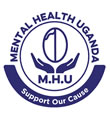In a groundbreaking initiative, Mental Health Uganda, with support from VOICE, is embarking on a transformative journey to normalize mental health conversations in Jinja City. The project, aptly named Normalizing Mental Health Conversations, seeks to dismantle the stigma surrounding mental health issues and foster a culture of openness and support through the Social Contact model.
Social Contact
At the heart of this project is the innovative Social Contact model. This approach creates meaningful dialogues between individuals with lived experiences of mental health challenges—known as mental health champions—and those who may not have direct experience with these issues. These champions, who have navigated their own mental health journeys and emerged resilient, are dedicated to sharing their stories to inspire change.
Why Social Contact?
Social Contact is more than just a conversation. It’s a powerful tool for:
- Facilitating Disclosure: Encouraging individuals to openly share their mental health experiences.
- Bridging Gaps: Connecting individuals with diverse experiences to foster understanding and empathy.
- Challenging Stigma: Demonstrating that mental health issues are as significant as any other health problem.
- Encouraging Health-Seeking Behavior: Inspiring those who are struggling in silence to speak up and seek support.
Selecting Rights Holders
Our mental health champions will be carefully selected from the MHU District Association, which includes individuals using psychiatric services, their caregivers, and service providers. After undergoing rigorous training, these champions will be equipped with knowledge on mental health facts and myths, human rights, peer support, Psychological First Aid (PFA), and effective referral practices. They will then lead Social Contact events across various spaces, igniting crucial conversations and fostering a supportive community environment.
A Closer Look at the Project
Key Objectives:
- Empowerment: Strengthen the capacity of people with lived experiences to challenge stigma, advocate for their rights, and drive change.
- Public Awareness: Enhance community knowledge about mental health, shift attitudes, and improve access to care.
- Evidence-Based Approach: Collect data through baseline surveys, monthly reviews, and annual learning events to monitor progress and impact.
Numbers at Baseline:
- 52% of families in Jinja City have encountered mental health conditions.
- 74% in Jinja City Southeast attribute mental health issues to alcohol and substance abuse.
- 58% in Jinja City North believe witchcraft is a primary cause.
These statistics reveal a pressing need for awareness and education, and through our champions, we aim to address these gaps head-on.
Join Us on This Journey
As we roll out this initiative, we invite you to follow our progress, support our champions, and engage in the conversations that matter. By working together, we can reshape perceptions, enhance understanding, and make mental health a priority in Jinja City and beyond.
Stay tuned for updates, and join us in breaking the silence around mental health. Together, we can make a difference.
For ongoing support and information, Mental Health Uganda offers a toll-free counseling line at 0800 21 21 21, Available Mon- Fri 8:30 am to 5:00 pm. For more details about our work or to get involved, please contact us at:
Address: Lungujja, Makamba Zone, Cell 15, House 58, Kampala, Uganda
Phone: 039 2178953
Email: info@mentalhealthuganda.org

